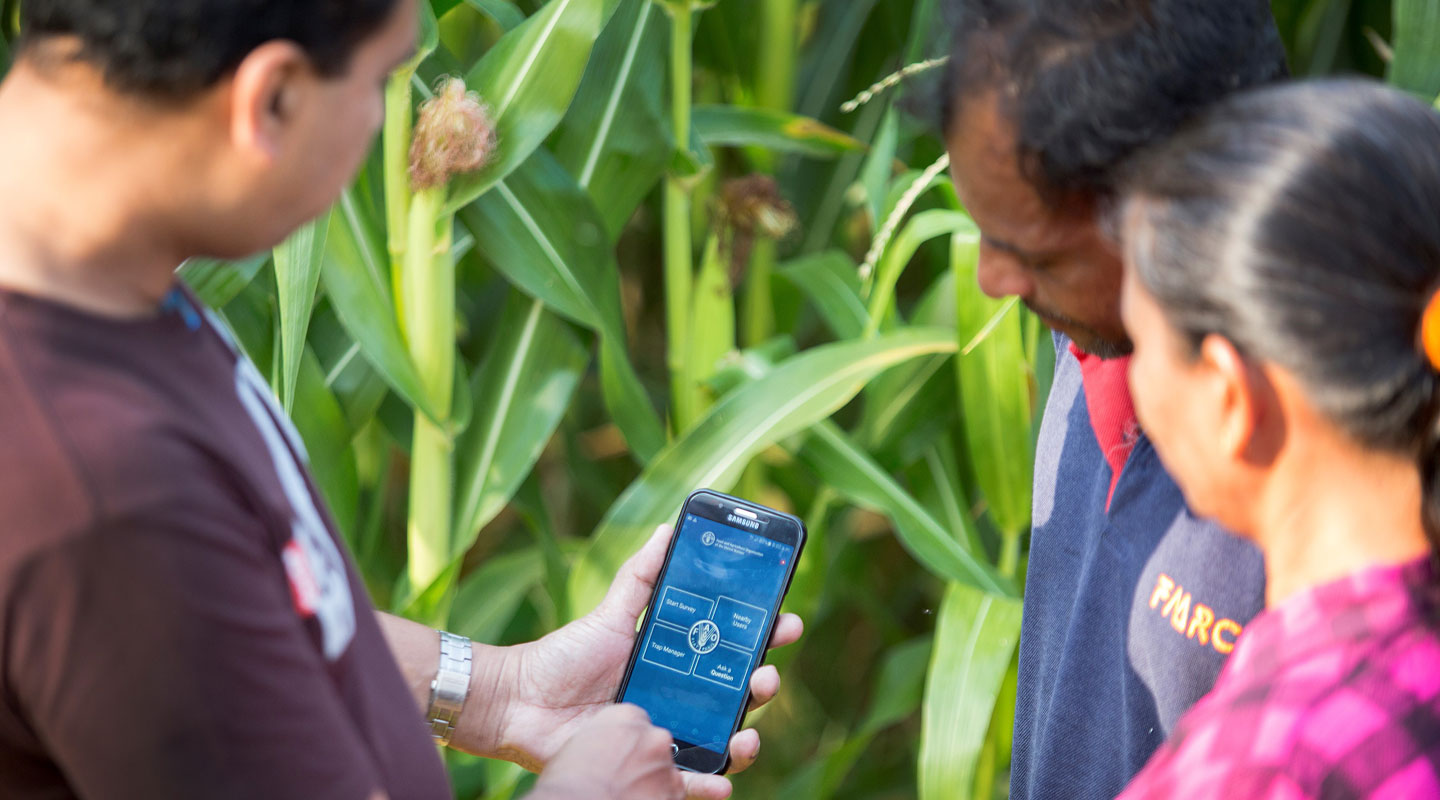Innovation matters, especially for small-scale farmers
IFAD Asset Request Portlet
Asset Publisher
Innovation matters, especially for small-scale farmers
Estimated reading time: 3 minutes
In an increasingly complex world, we need innovative approaches to new challenges. This is why IFAD is constantly applying the latest tools and technologies to design and implement programmes that work for rural people.
Here are six IFAD innovations proven to work for rural communities all over the world.
Resources and finance for rural people
 |
| It's more important than ever for rural people to have access to finance. © IFAD |
Accurate data on land tenure can be hard to track down. This makes it difficult to monitor progress on Sustainable Development Goals (SDGs) – which is crucial to protect small-scale farmers.
But with LandMonitor, inclusive land tenure data is being generated for and with beneficiaries for reporting, policy engagement and monitoring the SDGs. LandMonitor is already having an impact in the Philippines and is being rolled out in Brazil.
As climate change takes hold, it’s more important than ever for rural people to have access to finance so they can invest in their farms and adapt to changing circumstances. Yet financial institutions perceive small-scale agriculture as being too risky and are often reluctant to lend to small-scale rural producers, or simply don’t have the right financial products for them.
DiGi Climate Risk is changing this. By collating information, like household size and climate threats, this centralized dashboard helps financial service providers integrate climate risks into their lending processes, while data is also shared with rural communities to help them make the right investments.
So far, DiGi Climate Risk has proven successful in Guatemala, Ecuador, Senegal and Burkina Faso.
Storytelling and shifting mindsets
Women are vital for sustainable development. Yet they’re often excluded because they don’t hold economic power, are overwhelmed by household duties, or simply because of social norms.
Changing mindsets so women can use their experience and expertise to lead their communities is key to building a fairer world and achieving successful rural development.
In Peru, Behavioural Mindset Avanzar is applying behavioural science to increase women's participation in leadership workshops through self-affirmation activities, note-taking and planning. It’s a simple, low-cost way of getting women involved at scale. IFAD is now evaluating if the programme methodology can be mainstreamed into project design and rolled out in other places where women face similar barriers.
Imagine stepping into someone's shoes—be it a fisher in Mozambique, an indigenous person in Brazil, or a farmer in Madagascar—without ever leaving your chair.
Through IFAD360, small-scale farmers in the most remote areas are bringing their stories to the world as immersive videos allow viewers to experience the realities of rural people around the world.
Better data for better decisions

New technologies mean IFAD can design programmes that precisely reach the people who need them most.
Geoscan combines geographical data from verified sources to create customized country maps with more than 180 geospatial indicators, from soil types and changing rainfall patterns, to railways and livestock density.
Using these maps, IFAD has a holistic picture of the country and can develop strategies that consider the diverse factors that influence rural lives and livelihoods.
IFAD's data platform, Omnidata, provides our personnel with direct access to data and training in analytics and machine learning. This way, staff have all the data they need at their fingertips, allowing them to make responsive and evidence-based decisions.
From finance to storytelling, IFAD understands the importance of innovation. Over the years we have witnessed the positive effects of innovative approaches and the ways in which they have changed the lives of rural people for the better, and we will continue to invest in the latest tools and technologies to ensure that beneficiaries get the best out of our programmes.
Publication date: 28 June 2023